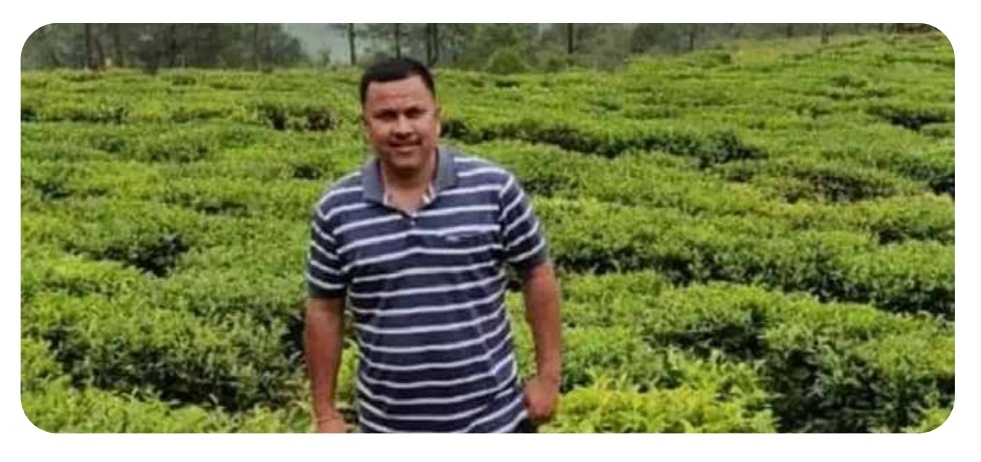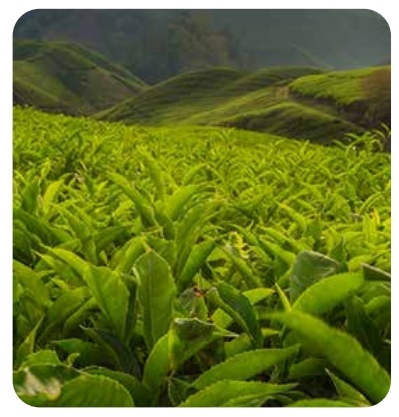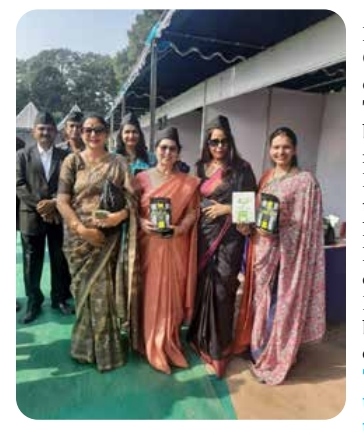Famous Tea Man of Uttarakhand

By
Col Satish Singh Lalotra
When one says tea, whether at home or abroad, a picture of Assam or Darjeeling tea flashes in everyone’s eyes. But a little-known tea named Berinag from remote Pithoragarh of Uttarakhand is most sought after in foreign countries from Europe to the Middle East.
Berinag Tea was highly in demand in famous London tea houses. It has been even documented by William McKay Aitken the Scottish born, naturalized Indian travel writer, author and mountain lover and famed man of taste Lawrence Wilfred “Laurie” Baker a British-born Indian architect.
Interestingly, the famous rare and famous organic tea was revived after decades by one Vinod Karki, professor turned armature farmer after decades of oblivion.
Berinag tea used to be produced in parts of eastern Himalayas in Uttarakhand much earlier.
It has an interesting history. Originally, the Berinag Tea estate was first bought by Thakur Dan Singh who was a billionaire philanthropist in the region in the nineteen fifties. It was home to one of the best tea gardens in the region until his death without a successor.

Later the tea estate was taken over by settlers and encroaches. Berinag tea is a well-known brick-tea made of leaves compressed into a solid mass. The manager of the Berinag tea company discovered the secret of manufacturing this Chinese brick tea, which was considered to be far superior to the Chinese variety. Berinag gets its name from the Berinag Temple (called as ‘Bedinag’ locally), which is a Nag Devta Temple situated at the top of Berinag Hill.
But a turning point came much later in 2011 when Karki took interest in the farming in his small native village Nayal, in the Berinag block of Pithoragarh district. After his initial success he was joined by other local farmers.
They also formed a Cooperative society named – Parvatiya Chai Utpadan Swayatt Sahakarita Samiti. In 2018 the Tea Board issued a license to the society for tea processing. Subsequently, it started a tea manufacturing cooperative unit.
With this as a starter, Vinod has been able to establish a mini tea factory in his own premises with the loan granted from the MSME (Micro small and medium enterprises) sector along with a packaging unit in the tea gardens.
On an average his cooperative tea venture has been able to collect 300 to 400 kilos of fresh tea leaves every day with immediate processing of these tea leaves to obviate their getting spoiled/rotten from the time they are plucked off by excessive moisture present in the atmosphere.
This year, the cooperative produced 8,000 kg of tea. The tea produced in the region is organic and has a special flavor and aroma. It is available in three categories-black orthodox, green orthodox, and little leaves, as per Karki. The trade name Berinag tea originates from a Chinese variety.
For Karki it was a dream cum true. As of today, the area of Berinag has about a dozen big tea gardens with an established capacity of tea plucking of about 8000 kilos of tea last year alone. His cooperative has been able to sell processed tea worth Rs 30 lakhs in the open market last year, a big deal in a remote tea estate.

The packaging unit was established in situ and marketed mostly through the online platform of Amazon and flip kart, sold for local consumption and also available at Uttarakhand Tea Development Board. Buying at a modest price of about Rs 40/- per kg from ‘Uttarakhand tea development board’ his joint venture plans to rake in about 20% to 25% of profit margin on the processed tea from its mini tea factory which is quite a handsome amount. As per Karki his main concern remains however to get new and fresh leaves plucked by his
labour force, since within a fortnight’s time new tea leaves sprout from the tea bushes thus making his job an always ‘On the toes type’. Though Karki has been able to carve out a niche for himself and his band of dedicated Kumaon farmers, he still has lots of grey areas and vast ground to cover. Buoyed by the success rate of Vinod Karki and his band of entrepreneurs HT Roorkee awarded 1st prize to his venture in this year.
To begin with there are no dedicated marketing platforms for selling the ‘Berinag tea’ to the rest of India except for the now available Amazon and flipkart e-shopping. In view of its huge popularity both at home and abroad, the Ministry of commerce and the state Government should try for bigger platforms for its marketing.
The area of Berinag, Nayal and other such other tea growing areas doesn’t have good road networks which leaves much to be desired for free movement of tea and its associated knick knacks to other parts of the country. Special tax holidays should be planned for tea planters in the region of Uttarakhand to give a boost to this emerging industry.
More farmers should be roped in this region to form tea cooperatives in order to make this venture a self-sustaining model for the rest of India to emulate. This will help in improving the local economy particularly tea tourism and thereby reduce the huge hill migration.




